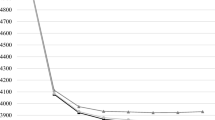Abstract
Ninety-six pairs of college students, relatively unacquainted with one another were asked to learn a novel and complex fantasy card game in a 50-min videotaped session, using first a scripted set of turns and written explanations of game rules and procedures, then playing until the end of the session or until a clear winner emerged. They then filled out a series of rating scales about their perceptions of and reactions to the session and their partner. Last, students filled out the Attitudes Toward Thinking and Learning Scale (ATTLS), a survey instrument that measures purported stable individual differences in epistemological approaches to learning and knowledge. Significant differences in perception of partners and the learning session were correlated with epistemological approach. Moreover, raters blind to students' epistemological approaches rated congeniality of the sessions differentially as function of the approaches of target students. Discrepancies between the partners' epistemological approaches led to differences in their ratings of their enjoyment of the learning session. Connected knowing (CK) and separate knowing (SK) differed as a function of participant's gender, as expected; however, scores were unrelated to any of the performance measures. This suggests once again that epistemological approaches do not affect the amount of learning that occurs, but rather the attitude a learner holds toward the process.
Similar content being viewed by others
REFERENCES
Alloy, L. B., Abramson, L. Y., & Francis, E. L. (1999). Do negative cognitive styles confer vulnerability to depression? Current Directions in Psychological Science, 8, 128-132.
Baxter Magdola, M. B. (1992). Knowing and reasoning in college: Gender-related patterns in students' intellectual development. San-Francisco: Jossey-Bass.
Belenky, M. F., Clinchy, B. M., Goldberger, N. R., & Tarule, J. M. (1986/1997). Women's ways of knowing: The development of self, voice, and mind. New York: Basic Books.
Clinchy, B.M. (1989). The development of thoughtfulness in college women: Integrating reason and care. American Behavioral Scientist, 32, 647-657.
Clinchy, B.M. (1990). Issues of gender in teaching and learning. Journal of Excellence in College Teaching, 1, 52-67.
Clinchy, B. M. (1995). “Narratives of mind, gender, and the life course”: Commentary. Human Development, 38, 258-264.
Galotti, K. M., Clinchy, B. McV., Ainsworth, K. H., Lavin, B., & Mansfield, A. F. (1999). A new way of assessing ways of knowing: The Attitudes Toward Thinking and Learning Survey (ATTLS). Sex Roles, 40, 745-766.
Gilligan, C. (1982). In a different voice: Psychological theory and women's development. Cambridge, MA: Harvard University Press.
Lyons, N. (1983). Two perspectives on self, relationships, and morality. Harvard Educational Review, 53, 125-145.
James, W. (1890). The principles of psychology (Vol. 2, chap. 18). London: Macmillan.
Jung, C. (1923). Psychological types. New York: Harcourt Brace.
Magic: The Gathering, Portal Version [game]. (1997). Renton,WA: Wizards of the Coast.
Perry, W.G. (1970). Forms of intellectual and ethical development in the college years: A scheme. New York: Holt, Rinehart &Winston.
Perry, W. G. (1981). Cognitive and ethical growth: The making of meaning. In A. Chickering (Ed.), The modern American college (pp. 76-116). San Francisco, CA: Jossey-Bass.
Rayner, S., & Riding, R. J. (1997). Towards a categorisation of cognitive styles and learning styles. Educational Psychology, 17, 5-27.
Sternberg, R. J., & Grigorenko, E. L. (1997). Are cognitive styles still in style? American Psychologist, 52, 700-712.
1999 University and College Rankings. (2000). USNewsandWorld Report [On-Line]. Available: http://www.usnews.com/usnews/edu/ugrad00/drstudent_2340.htm.
Author information
Authors and Affiliations
Corresponding author
Rights and permissions
About this article
Cite this article
Galotti, K.M., Drebus, D.W. & Reimer, R.L. Ways of Knowing as Learning Styles: Learning MAGIC with a Partner. Sex Roles 44, 419–436 (2001). https://doi.org/10.1023/A:1011978011991
Issue Date:
DOI: https://doi.org/10.1023/A:1011978011991



